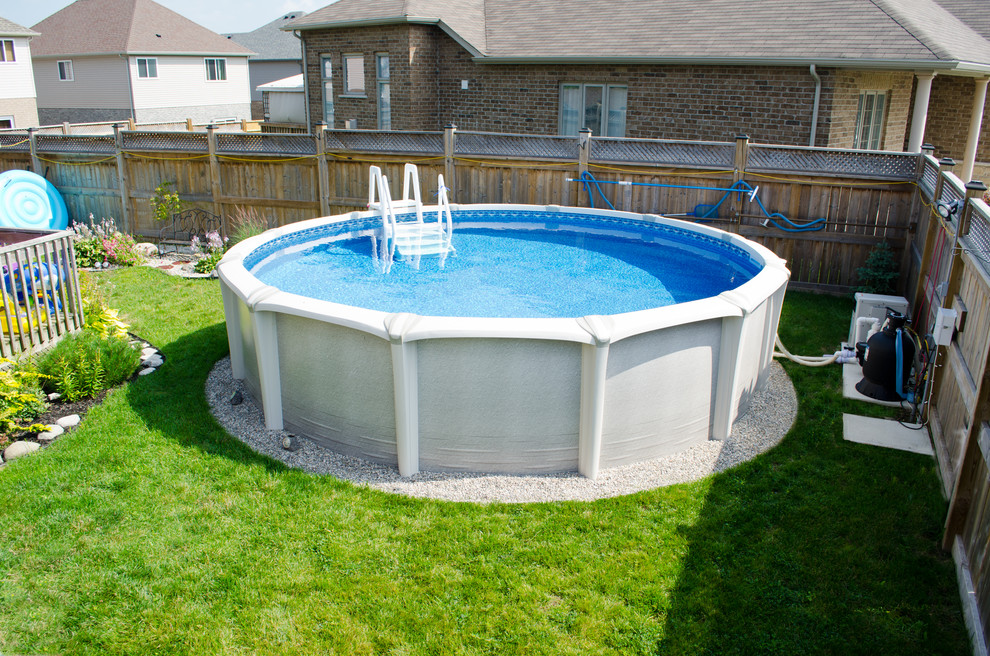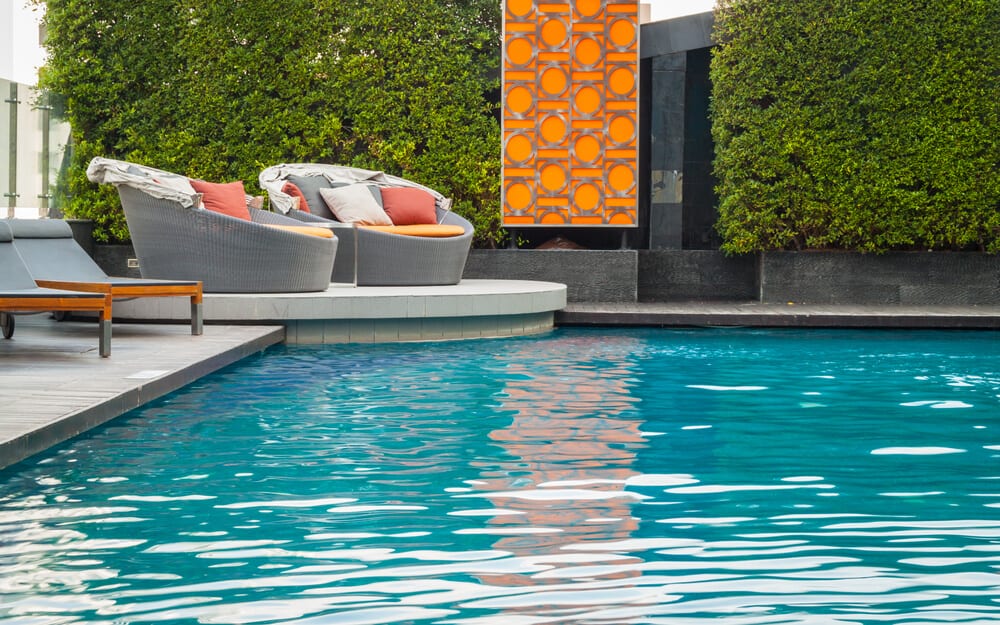Most people have the impression that the water in saltwater pools is similar to ocean water.
However, that’s not actually true. A saltwater pool has 10 times less salt compared to ocean water.
A specific amount of salt needs to be maintained for the pool to remain clean and clear.
Standard chlorine pools depend on regular additions of bromine or chlorine to disinfect the water.
Meanwhile, saltwater pools have an electrolytic chlorine generator to break down the salt to generate chlorine.
The generated chlorine sanitizes the pool water in the same way that store-bought chlorine except for one major difference – saltwater pools don’t have the same amount of chloramines, a by-product of store-bought chlorine responsible for strong smells, eye redness, and skin irritation.
What are the benefits of a salt water pool?
If you’re planning on installing or converting to a saltwater pool, check out the benefits below:
Gentler on the Hair, Eyes and Skin
Saltwater pools use an electrolytic chlorine generator that splits the salt into its basic component parts.
Unlike store bought-chlorine products, the chlorine in saltwater has less chloramines which means the water is gentler and reduces red eyes, irritation, and strong smells.
If you ever tried swimming in a highly-chlorinated pool, you would know the feeling of mistakenly opening your eyes under water.
The stinging in the eyes is certainly not a pleasant experience. With saltwater pools, stinging from the chlorine is something less to worry about.
Less Maintenance
Chemical-related maintenance tasks associated with owning a traditional pool include testing the chemical balance of the water, adding store-bought chlorine, shocking the pool as needed, and adding other chemicals to help balance the calcium hardness, total alkalinity, pH, and to reduce any heavy metals present in the water.

With saltwater pools, the electrolytic chlorine generator does the job, only adding chlorine as needed.
With this water chlorination mechanism, saltwater pool owners don’t need to worry about having to use and balance multiple chemicals regularly to balance the water composition.
Simply add salt and monitor the levels with bi-weekly tests. Adding additional salt as necessary will maintain the chlorine levels in the pool.
No need to worry about storing or handling chlorine
Storing concentrated forms of hazardous or strong chemicals in your house can pose a hazard to the people, plants, and animals in the surrounding area. Owning a chlorine pool would mean that you need to have such chemicals ready to maintain the water’s chemical balance.
Since saltwater pools use electrolysis to split salt and create the needed amount of chlowing, you don’t have to worry about storing buckets or bottles of harmful chemicals including chlorine, clarifier, bromine, stabilizer, algaecide, etc.
More expensive than traditional chlorine pools
Since swimming in saltwater pools is easier on the skin and eyes, it’s understandable that it is more expensive than traditional pools.
The cost of a swimming pool varies depending on whether it’s an above-ground pool or an in-ground pool and whether it is a gunite pool or a fiberglass pool.
Installing a chlorine system for a pool is significantly more affordable than installing an electrolytic chlorine generator.
Maintaining a saltwater pool is also more costly than traditional pools, with the generator cells needing to be replaced every few years in a saltwater pool.
Salt can damage pool materials over time
Salt may be safer and more gentler than store-bought chlorine but it is also a corrosive component that can lead to damage of metals like ladders, heaters, diving board brackets, etc.
Of course, the damage doesn’t happen all at once; it happens over time.
The salt can degrade metals, weakening it and causing rusting along the way. This is why it’s important to have regular inspections of the interior and exterior parts of the pool, including all pool equipment and structures.
Whenever possible, try to clean saltwater from these surfaces and replace or repair structures or objects that are showing signs of rusting.
Generally, saltwater pools require less maintenance than traditional chlorine pools.
Saltwater pools are also better for the skin, hair, and eyes because of the lower chlorine levels. When it comes to cleanliness and maintenance, saltwater pools are also easier to handle.
Saltwater pools are also deemed to be safer than chlorine pools.
The only factor that you need to consider if you’re on a budget is that saltwater pools are more expensive to install and maintain.

Repairs to the pump or filters of a traditional chlorine pool should be handled by professional pool technicians.
However, any issues with the pool water composition can be easily fixed by testing the water and adding chemicals as necessary to reach the correct water balance for safe and enjoyable swimming.
When it comes to saltwater pools, it’s hard to entrust any issues to anyone.
The electrolytic chlorine generator is a complicated equipment that should only be checked and serviced by an expert pool technician to ensure that it’s functioning properly.
Bryte Pools has a team of expert pool technicians that are trained and licensed to service saltwater pools.